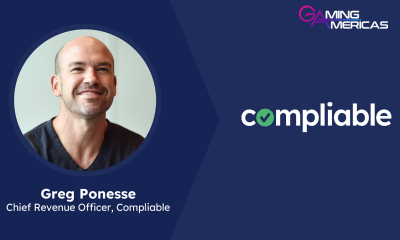Compliance Updates
How suppliers can maintain a presence in the US space
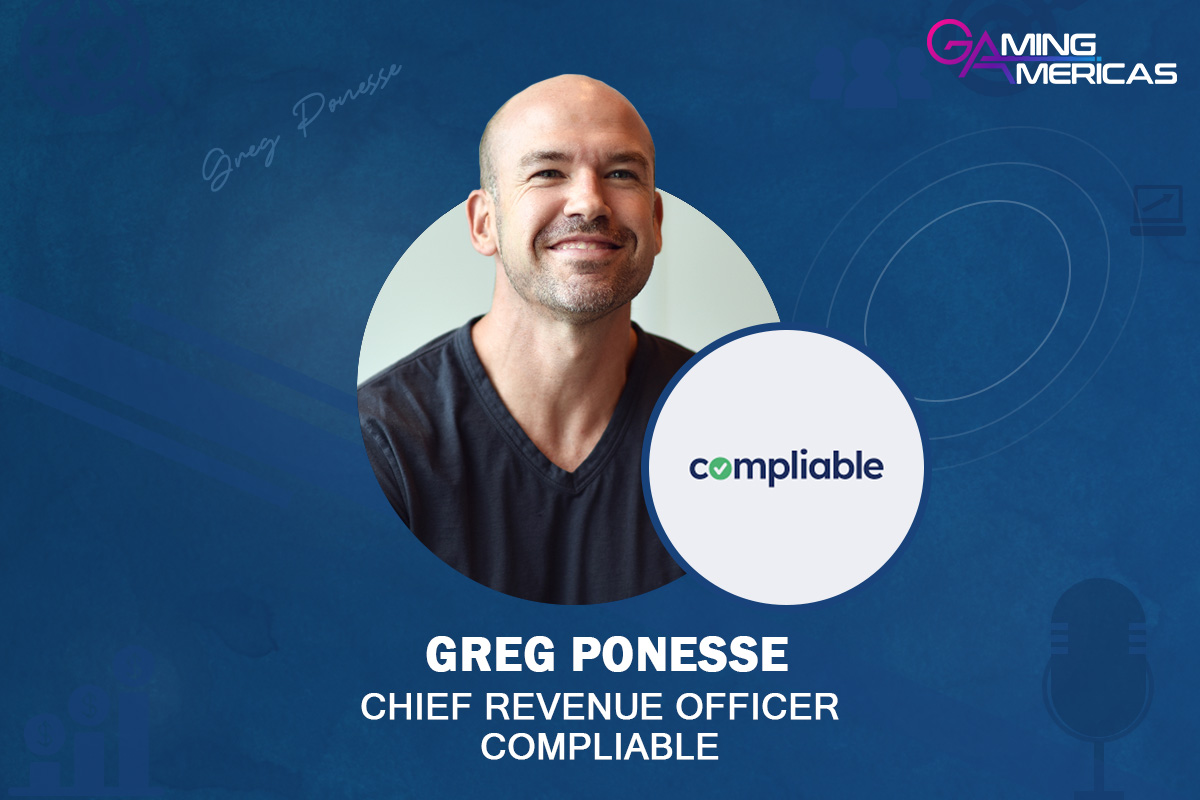
While a lot of talk about the US betting and gaming markets have been around operators and the highly competitive climate, behind the scenes, suppliers are also battling for a slice of the cake.
From powering betting and casino offerings to providing games content, reg tech, and RG solutions, the US is a region with high potential for suppliers willing to invest time and resources.
We spoke with Compliable’s Chief Revenue Officer, Greg Ponesse, to discover more about how suppliers can establish a presence and achieve their goals in the US.
A lot of the recent focus on North America has been around operators and the tough competitive landscape, but how are suppliers faring?
Overall, suppliers are doing quite well. This is partly driven by the simple fact that all operators rely heavily on suppliers in one way or another to run their businesses. On the platform and content side, the big players such as Light & Wonder, Everi, Aristocrat and Playtech, are especially vital as their casino offerings keep operators progressing. In a way, they become the production engine for operators and help entice customers to the gambling sites.
Smaller content suppliers may have a tougher time to fight off the competition from well-established land-based US giants, but as the markets mature, we are likely to see an increase of newer studios in the casino lobbies.
Outside of the content sphere, there is plenty of excitement around suppliers of reg tech, responsible gambling solutions, geolocation platforms and KYC tools etc, which are crucial for operators to further grow their businesses, so I expect to see more growth in that area too.
How do the licensing requirements differ for suppliers in the US compared with operators?
Both must navigate a complex and often-changing regulatory landscape but operators usually require a more comprehensive type of license due to their direct interaction with consumers and handling of player funds, meaning more rigorous and stricter investigations and background checks. This can include scrutiny of financial history, research into key employees, and inspections around anti-money laundering practices and responsible gaming.
Providers of goods and services to the industry need different types of licenses, and often fewer ones, with less stringent regulatory requirements regarding operational procedures. They must however adhere to standards ensuring the integrity and security of their products and can face a more focused set of rules related to specific technical standards and testing requirements.
From a cost perspective, an operator’s market entry fee is typically markedly higher than a supplier’s, including steeper licensing fees and taxes.
Are there any challenges that suppliers need to be aware of before entering the space, especially coming from Europe? Any common mistakes?
The first thing to determine is what type of license is required, and we often see suppliers apply for the wrong license or licenses they don’t necessarily need. This slows down the process and can end up being costly, so getting some guidance around this is recommended.
There are major regulatory differences in the US compared to Europe, with laws varying by state, so suppliers must be ready to navigate this unique landscape. Common mistakes include underestimating the complexity and cost of compliance and licensing, not adapting products to specific consumer tastes, meeting the legal requirements of different US states, overlooking the importance of local partnerships and networks, failing to have a robust plan for payment processing that complies with US regulations, and ignoring the potential for intellectual property disputes.
The overall licensing procedure is lengthy and complicated so European providers need to be prepared for detailed background checks and long waiting periods. To avoid any difficulties, companies must be fully committed and ready to adapt and comply with all the rules and regulations in the US.
Will the investment be worth the rewards for suppliers entering the US or is the local competition too hard?
From a traditional game perspective, the US has some well-established suppliers with a long history in the land-based sector and they are doing extremely well. There are however European suppliers who are also popular in the US market. In order to be successful, it is all about competitive differentiation as that is what operators are looking for. Evolution is a great example of this. As a fairly late market entry, they have still managed to stand out and is now dominating the live casino space with an unparalleled offering.
Many European suppliers have been in the market for a long time, so they have the knowledge and experience that can give them a competitive edge as they enter the US. It does take a lot of resources and investment but if you have a truly innovative product, you can make a mark.
How can Compliable help suppliers in the space?
We provide speed and accuracy and enable companies to keep up to date on what licenses are required. Our scalable platform allows employees to securely enter their information just once, with the data then being auto-populated across multiple forms and applications, making it simple to apply for different jurisdictions at the same time. Compliable keeps users aware of the licensing journey and offer FAQs and 24/7 help throughout.
We accelerate the licensing process for both operators and suppliers, giving them a competitive advantage in an industry where the first movers retain larger market share. Speed is just as important for suppliers who must keep up with the expansion of their operator partners, and we can offer that necessary support.
Compliance Updates
574 Slot Machines, Bingo Halls and Online Betting Modules were Destroyed by Coljuegos

The Illegal Operations Control Department destroyed 574 gambling items that had been seized because they were operating without authorization in departments such as Cundinamarca, Atlántico, Valle del Cauca, among others, and which stopped transferring around $63.545 million to the health system.
“The destroyed items were valued at around $169 million and belonged to criminal structures that were dedicated to operating games of chance and luck without authorization and without paying the respective monopoly rents,” said Marco Emilio Hincapié, president of Coljuegos.
Among the destroyed items were electronic slot machines, bingo chairs, roulette wheels, poker tables, Keno and online betting modules, each of them composed of computers, CPUs, televisions, ticket machines, among others.
“In total, we have completed 7,934 destroyed items, valued at more than $1.5 billion. Due to these illegal activities, the health system has lost more than $200 billion in recent years, resources that would have allowed us to serve more Colombians under the subsidized regime,” said the president of the entity.
Hincapié also said that in the coming days, Coljuegos will continue destroying another 117 electronic slot machines, 350 bingo elements (chairs, tables and boards), 8 poker tables and 252 sports betting modules.
“Never before has an administration attacked illegality in the industry so strongly. We are doing this at the behest of our president Gustavo Petro, who has always asked us to fight corruption and to decisively strike the mafias that operate unauthorized games in various regions of the country,” said Hincapié.
It is worth mentioning that illegal gambling organizations in Colombia are failing to pay the State around $1.5 billion annually for exploitation rights, resources that could be allocated to the health of low-income citizens.
Compliance Updates
GAMING POLICY ADVISORY COMMITTEE – NOTIFICATION OF SEATS WITH TERMS EXPIRING DECEMBER 31, 2024
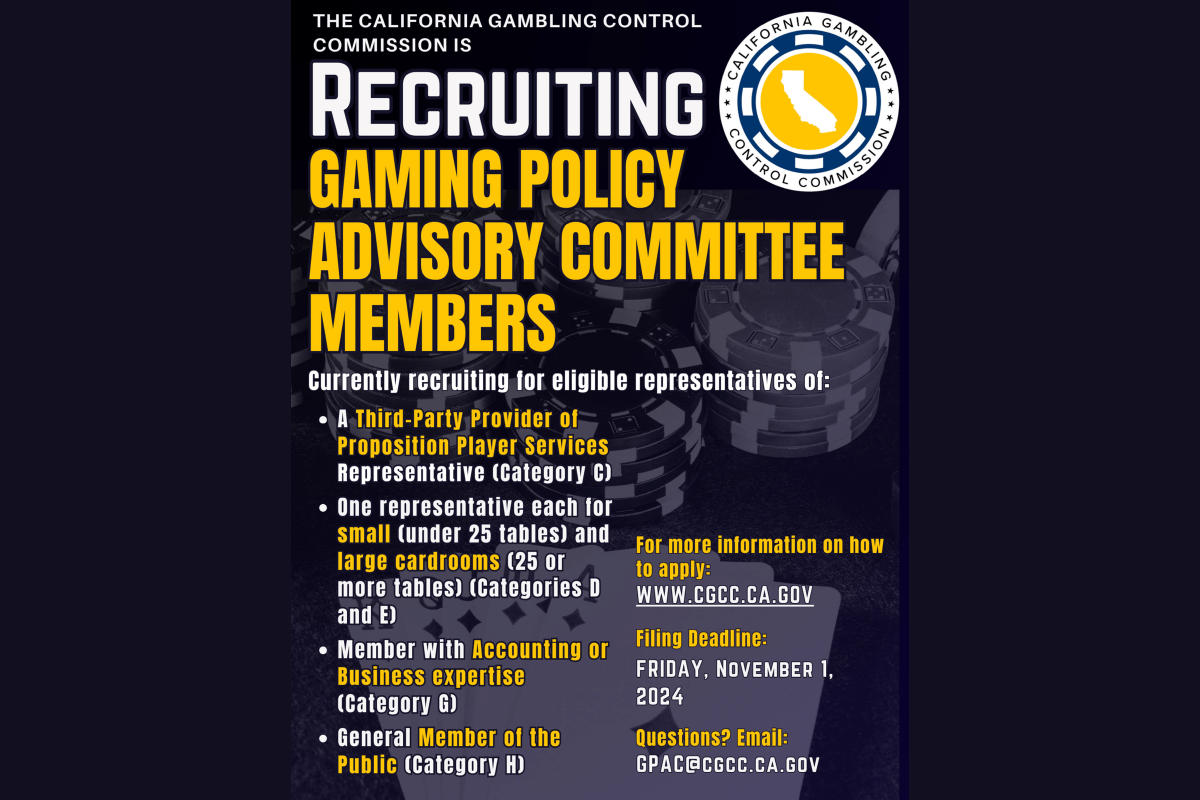
The Gaming Policy Advisory Committee (GPAC) is a ten-member committee established pursuant to Business and Professions Code section 19817 to provide advisory recommendations to the California Gambling Control Commission (Commission). Its membership, as appointed by the Commission, includes equal part appointments from the public as well as the cardroom industry.
The GPAC has the following five highlighted seats that have a term limit ending on December 31, 2024.
PUBLIC REPRESENTATIVES:
Category A: An employee from the Bureau of Gambling Control (BGC), Department of Justice (1 seat)
Category B: A representative from an agency or nonprofit concerned with problem gambling and/or gambling addiction (1 seat)
Category F: A representative affiliated with local law enforcement from a local government where an approved ordinance allows legalized gaming (1 seat)
Category G: A professional with an accounting or business background and not currently affiliated with a California legalized gambling entity (1 seat)
Category H: A general member-at-large not currently affiliated with any California legalized gambling entity (1 seat)
INDUSTRY REPRESENTATIVES:
Category C: A licensee, agent, or employee from a Third-Party Provider of Proposition Player Services (1 seat)
Category D: A licensee, agent, or employee from an actively licensed cardroom with 25 tables or more in operation (2 seats; 1 seat vacant ¹)
Category E: A licensee, agent, or employee from an actively licensed cardroom with less than 25 tables in operation (2 seats; 1 seat vacant)
The Commission is currently accepting applications through November 1, 2024, from all eligible applicants for the GPAC seats in the following categories: C, D1, E1, G¹ and H.
The GPAC Application and Selection Process can be found on the Commission’s website at www.cgcc.ca.gov. Applications should be submitted electronically to [email protected]. Interviews will be scheduled shortly after the application deadline (mid-November).
GPAC’s mission is:
The Commission is currently accepting applications through November 1, 2024, from all eligible applicants for the GPAC seats in the following categories: C, D1, E1, G¹ and H.
The GPAC Application and Selection Process can be found on the Commission’s website at www.cgcc.ca.gov. Applications should be submitted electronically to [email protected]. Interviews will be scheduled shortly after the application deadline (mid-November).
GPAC’s mission is:
“Provide advisory recommendations to the California Gambling Control Commission concerning matters of controlled gaming regulatory policy and other relevant gambling related issues, with special attention to guaranteeing the integrity of gambling operations and to deal effectively with problem gambling.”
The GPAC currently meets every eight weeks. GPAC meetings will be held via Zoom through the end of 2025 whereupon meetings will have to be a combination of in person and via Zoom. Audio recordings of previous meetings can be found on the Commission’s website.
The GPAC is an asset when addressing matters of importance for the cardroom industry. GET INVOLVED, whether through attending the GPAC’s public meetings, submitting an application for consideration of appointment to the GPAC, or by simply sending in comments for the GPAC’s consideration and discussion via the email address below.
“Provide advisory recommendations to the California Gambling Control Commission concerning matters of controlled gaming regulatory policy and other relevant gambling related issues, with special attention to guaranteeing the integrity of gambling operations and to deal effectively with problem gambling.”
The GPAC currently meets every eight weeks. GPAC meetings will be held via Zoom through the end of 2025 whereupon meetings will have to be a combination of in person and via Zoom. Audio recordings of previous meetings can be found on the Commission’s website.
The GPAC is an asset when addressing matters of importance for the cardroom industry.
Compliance Updates
GiG grows regulated market footprint with new B2B supplier authorisation for Peru
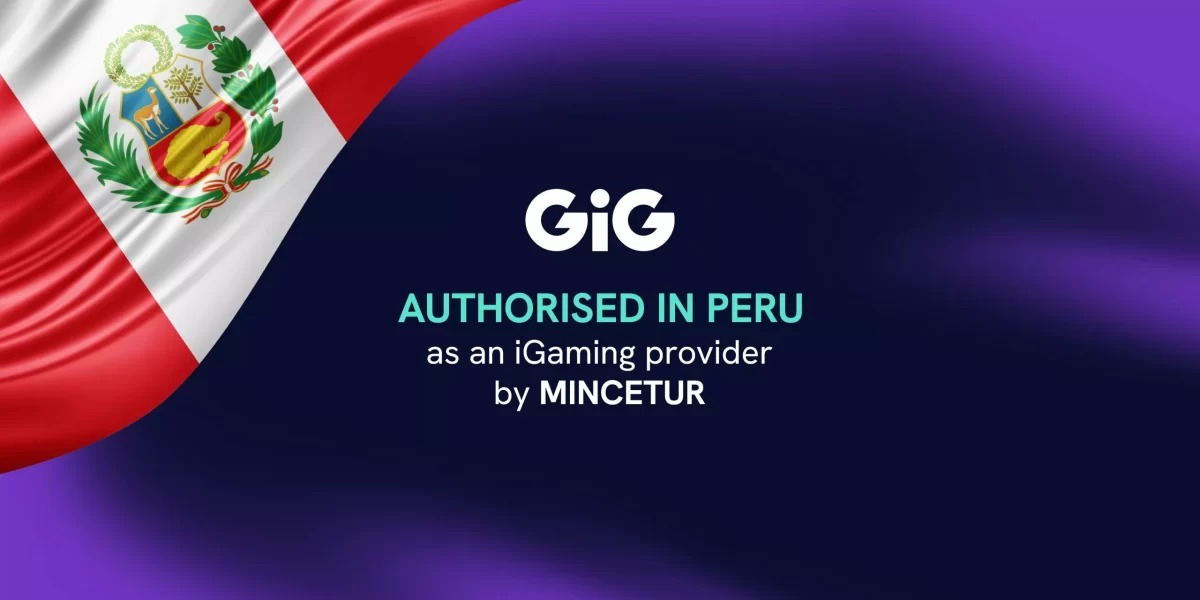
Gaming Innovation Group (GiG) has been awarded an authorisation and registration (homologation) for Peru, officially allowing it to partner with operators based in the newly regulated Latin American market, as GiG continues to grow its regulated market presence with over 29 complex regulated markets now available globally, on its revolutionary iGaming technology.
The accreditation process, which opened its doors earlier this year, marks an early entry for GiG that will allow it to serve a market expected to grow post regulation by up to 104%, up from €194m to €397m, in gross gaming revenue (GGR) over the next three years, according to H2 Gambling Data.
This new authorisation from the Peruvian authority, granted to GiG by Ministerio de Comercio Exterior y Turismo de Perú (MINCETUR) , and covers its award winning PAM, as GiG continues a long-standing commitment to regulated market expansion, reaffirming’s its position as a global leader for growth in highly regulated markets.
GiG’s Peruvian presence gained prominence with the announcement of the launch of Betsson Group’s Inkabet brand, in July, expanding on the successful partnership between the two, in regulated markets around the world.
GiG is continuing to expand its presence in global regulated markets, and across Latin America, with its innovative iGaming platform, as its powerful, secure, and scalable platform offers operators significant opportunities for exponential revenue growth, with a suite of dynamic localisation features. Peruvian operators will benefit from GiG’s integration with leading content and payment providers, with advanced AI tools, DataX and LogicX, enhancing decision-making and rule-building processes. This balance of cutting-edge tools and best-in-class features have proven highly effective in increasing player acquisition and retention, highlighting GiG’s competitive edge in complex regulatory environments like Peru.
Claudio Caruana, General Counsel for GiG says; “The addition of the Peruvian authorisation to our ever expanding list of supported regulated markets continues to demonstrate the focus we at GiG have placed on legislation, providing the framework essential for sustainable and prosperous growth within the online igaming industry. We are delighted to be fully prepared to power new and potential partners with our award winning technology in the area.”
-

 Interviews7 days ago
Interviews7 days agoAxel Antillon: Our Peru entry is a major milestone for WA.Technology
-
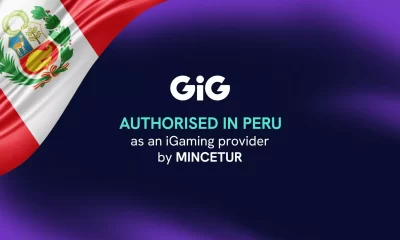
 Compliance Updates6 days ago
Compliance Updates6 days agoGiG grows regulated market footprint with new B2B supplier authorisation for Peru
-

 Latest News5 days ago
Latest News5 days agoHarrah’s Cherokee Valley River’s New Hotel Tower Nears Completion
-

 Latest News6 days ago
Latest News6 days agoPatrick Homm to Lead Scientific Games International Lottery Systems Technology
-
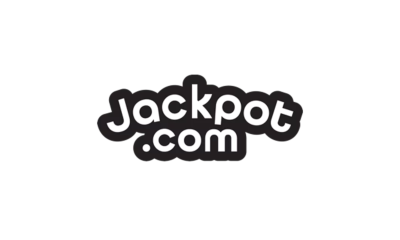
 Latest News6 days ago
Latest News6 days agoLottery Courier Jackpot.com Launches Digital “Scratchers”
-
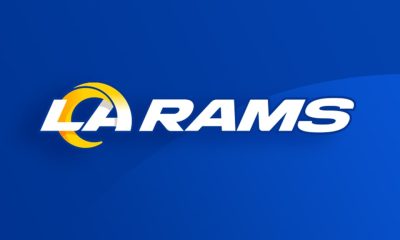
 Latest News2 days ago
Latest News2 days agoLos Angeles Rams launch Next Gen Stats-powered, in-stadium highlights through new collaboration with Genius Sports
-

 Latest News6 days ago
Latest News6 days agoDiffusionData Appoints Raphael Vergnaud as CRO
-
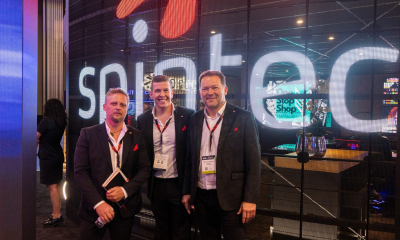
 Press Releases6 days ago
Press Releases6 days agoSpintec Introduces a Host of New Products at G2E






